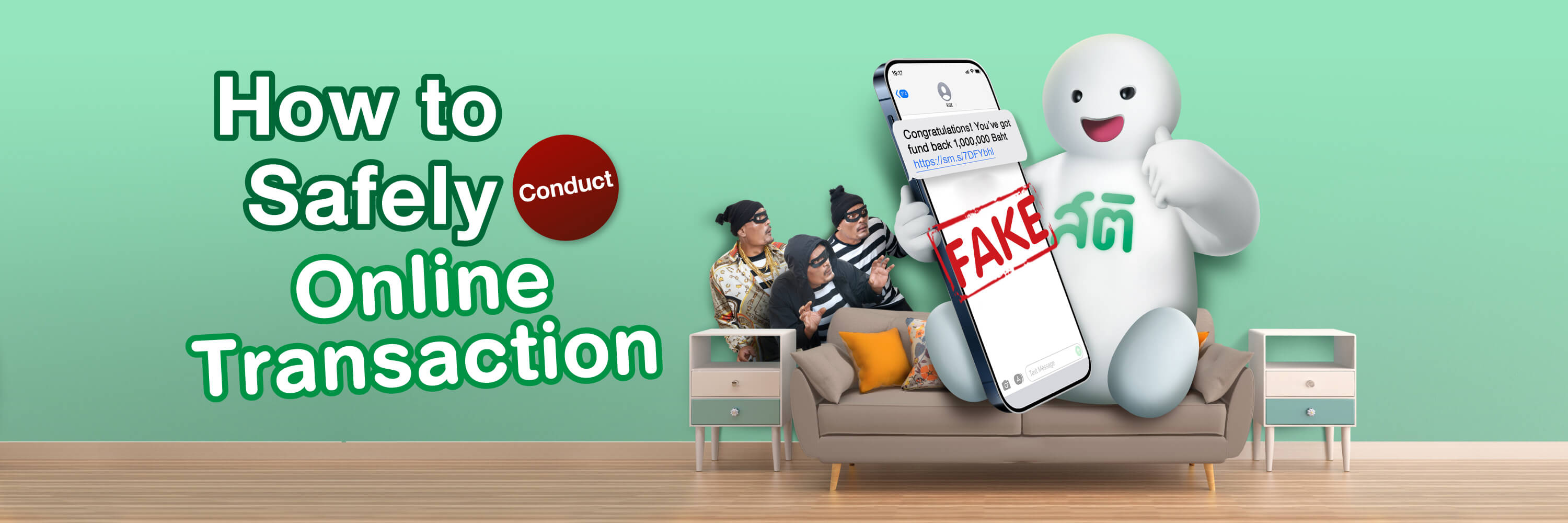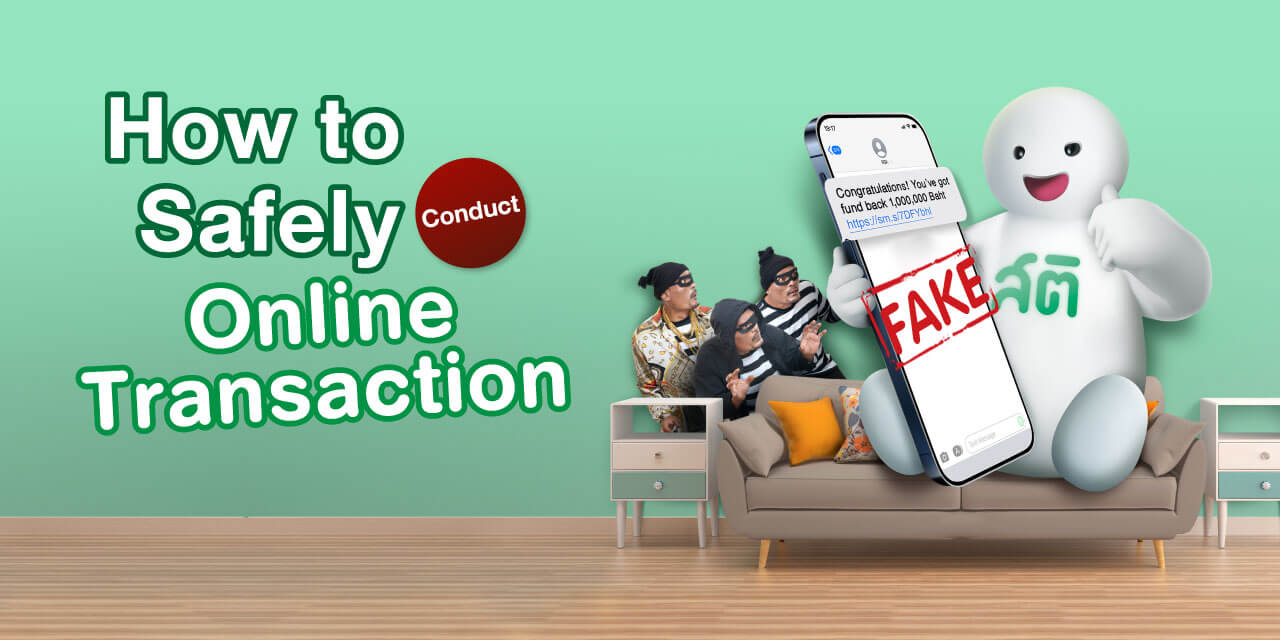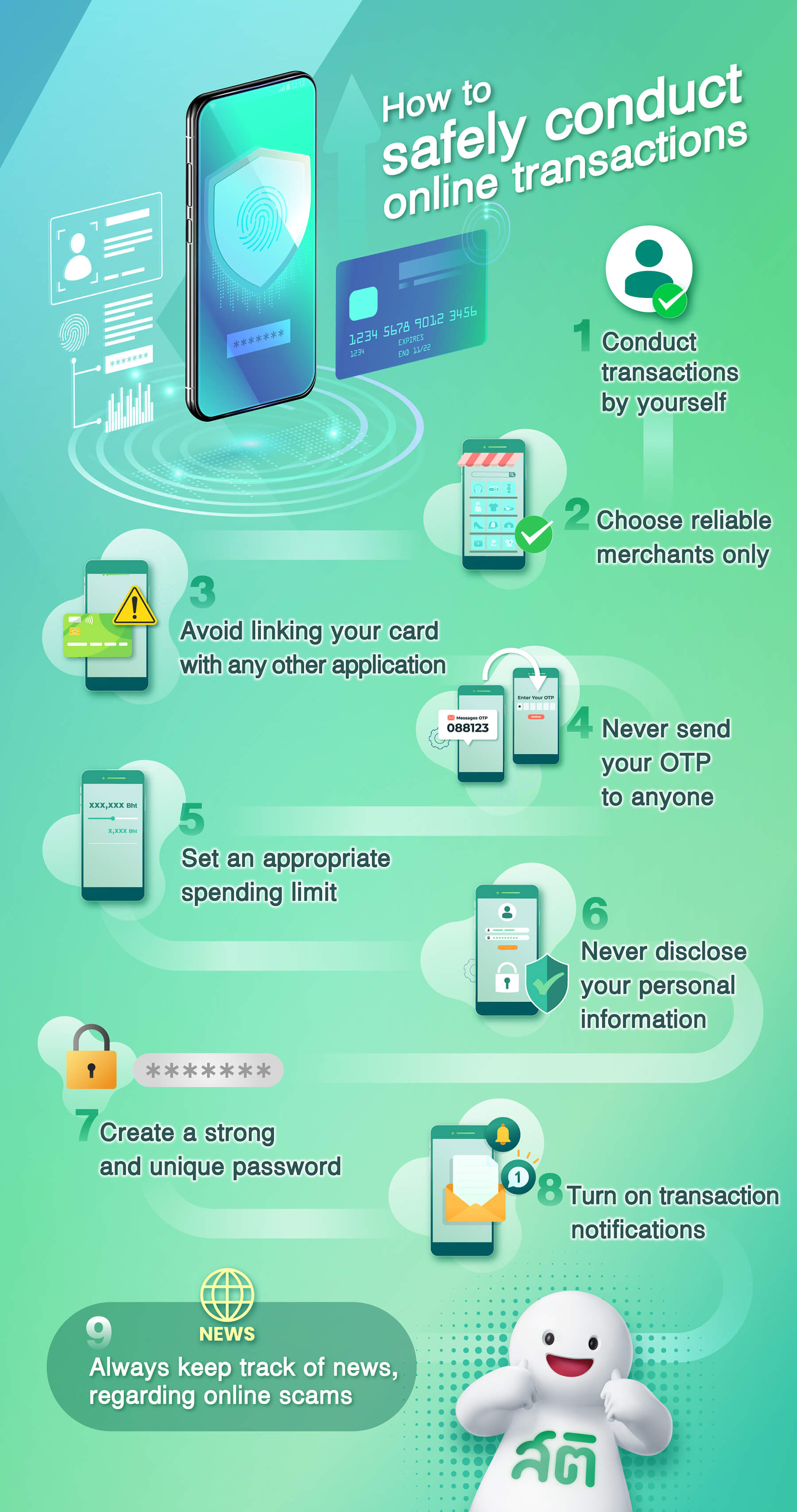1. You must conduct your online transactions by yourself.
Do not leave your mobile phone with others. Never allow anyone to conduct a transaction on your behalf. So doing will prevent fraudsters from assuming your identity to steal money from your account.
2. Buy only from trustworthy online merchants.
Criteria on how to choose online stores include clear conditions and details of products available, positive feedback from other customers, such as delivery of goods that match the purchase specifications, accountability for
defective or damaged products, regularly answering customers’ questions, etc. You should read store reviews and comments before making the decision to purchase.
3. Avoid linking your card with any other application
Do not link your credit or debit card with an online store or platform with no identity authentication via one-time password (OTP); doing otherwise may lead to identity theft.
4. Do not share your OTP with others.
An OTP is literally a key to your door. Sharing your OTP with anyone else is like giving a key to a thief who will break into your house with ease.
5. Adjust online payment limits to suit your typical spending.
Do not set such limits too high, in order to avoid inadvertent loss. You are advised to set a zero limit when no spending is required.
6. Do not disclose your personal data or sensitive financial information to others
or post it on social media sites, either. This includes credit card number or CVV number, account number, ID card number, etc. Do not give said data to any person, even to those who claim to be representatives of KBank. Be
aware that KBank has no policy to contact customers via phone to request their personal data or other sensitive information.
7. Create strong passwords, and never use the same password across multiple platforms.
If you use the same password across multiple accounts, it will make your accounts less secure. Once that password is compromised, you could face enormous losses from all of your accounts.
8. Set push notification for incoming/outgoing payment
via email or SMS. Regularly check the notifications to ensure that the notified transactions are correct. If irregular transactions are found, you should contact the Bank immediately.
9. Keep yourself updated with online scam-related news to stay ahead of scammers.
This will allow you to learn tips, especially on how to identify cyber frauds, and thus protect yourself from any form of cyber threats.
That’s simple, isn’t it? Follow the above advice and you’ll have peace of mind that your online transactions will be more secure. Don’t forget to share these tips with your loved ones so that they will not fall victim to scammers.






